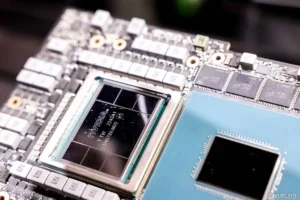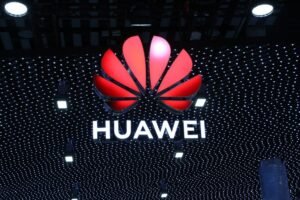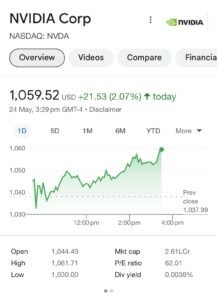In a strategic move to fend off mounting competition from Chinese tech giant Huawei, Nvidia has cut prices on its most advanced AI chips tailored for the China market by up to 20%. This price reduction underscores the challenges Nvidia faces amid U.S. sanctions and increased local competition, raising questions about its future in a critical market that contributed 17% to its revenue for fiscal 2024.
Oversupply and Weak Demand of Nvidia

Nvidia’s H20 chip, the most powerful AI product it sells in China, has been met with weak demand, leading to an oversupply in the market. According to sources familiar with the matter, the H20 chip is being sold at a discount of over 10% compared to Huawei’s Ascend 910B, which is the most advanced AI chip from the Chinese company. This marks a significant price drop, with H20 chips priced around 100,000 yuan per unit, while Huawei’s 910B sells for over 120,000 yuan per unit.
The U.S. Department of Commerce imposed export bans on Nvidia’s most advanced AI chips in late 2022 to prevent China from accelerating its military-grade AI capabilities. In response, Nvidia introduced the H20 chip as a less advanced alternative compliant with U.S. regulations. However, this chip has struggled to gain traction in the Chinese market.
Nvidia’s CFO Colette Kress acknowledged the challenges during the company’s first-quarter earnings call: “Our data centre revenue in China is down significantly from the level prior to the imposition of the new export control restrictions in October. We expect the market in China to remain very competitive going forward.”
 Huawei has capitalized on the situation by ramping up production and shipments of its Ascend 910B chip, which reportedly outperforms Nvidia’s H20 in several key metrics. Sources indicate that Huawei will dramatically increase its shipments of the 910B chip in 2024, further intensifying the competition.
Huawei has capitalized on the situation by ramping up production and shipments of its Ascend 910B chip, which reportedly outperforms Nvidia’s H20 in several key metrics. Sources indicate that Huawei will dramatically increase its shipments of the 910B chip in 2024, further intensifying the competition.
Nvidia’s attempts to capture market share are complicated by Beijing’s directive for local companies to prioritize Chinese-made chips. Although this order has eased recently, it continues to affect Nvidia’s sales.
Analysts highlight the delicate balance Nvidia must maintain between adhering to U.S. sanctions and sustaining its presence in China. “Nvidia is walking a fine line and working on a balancing act between maintaining the Chinese market and navigating U.S. tensions,” said Hebe Chen, a market analyst at IG. “Nvidia is definitely preparing for the worst in the long term.”
Despite the competition, some Chinese tech giants have still placed orders for Nvidia’s H20 chips. Alibaba, for instance, has ordered over 30,000 H20 chips, according to sources. However, the overall interest from state-affiliated buyers remains lower compared to Huawei’s offerings.
The pricing pressure has led to significant margin reductions for Nvidia. Dylan Patel, founder of research group SemiAnalysis, noted, “The H20 cost more than an H100 to manufacture due to its higher memory capacity, but it is being sold at half the price of the H100.” This scenario results in a dramatic decrease in Nvidia’s profit margins.

Nvidia’s data center revenue from China dropped from 19% to 14% of its total revenue over the past year due to these sanctions and competitive pressures. In its recent earnings report, Nvidia did not provide specific figures for China, reflecting the growing uncertainties in the market.
Nvidia’s strategy involves not just price cuts but also adapting its product offerings to comply with U.S. regulations while trying to meet the competitive pressures from Huawei. The H20, derived from the H800, was specifically designed for the Chinese market, but its reception has been lukewarm due to the abundant supply and competitive alternatives.
China’s push for self-reliance in critical technologies, particularly semiconductors, poses a significant challenge for Nvidia. The Chinese government has urged local operators to phase out foreign chips by 2027, adding to Nvidia’s strategic hurdles.
Nvidia’s decision to cut prices on its AI chips in China highlights the intense competition and strategic challenges it faces in one of its most important markets. While the company remains a global leader in AI chips, its future in China will depend on its ability to navigate regulatory hurdles and compete with increasingly powerful local rivals like Huawei.












Comments 1